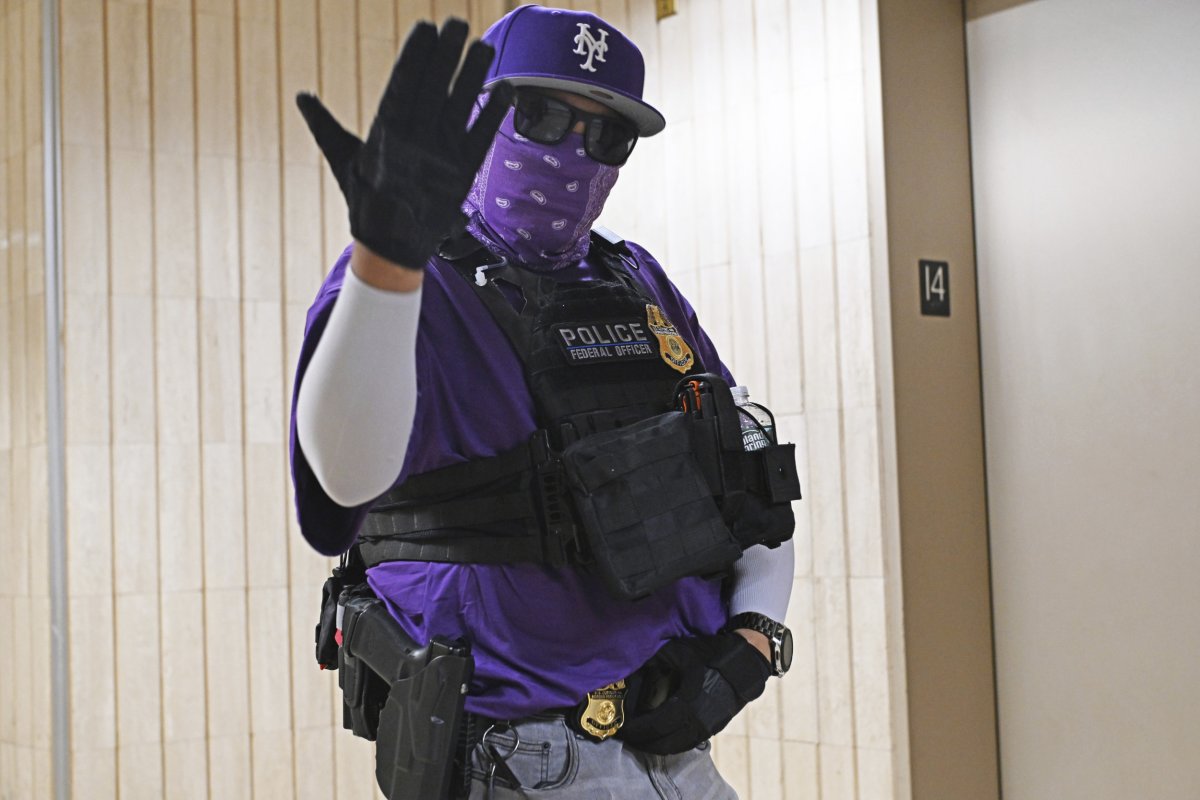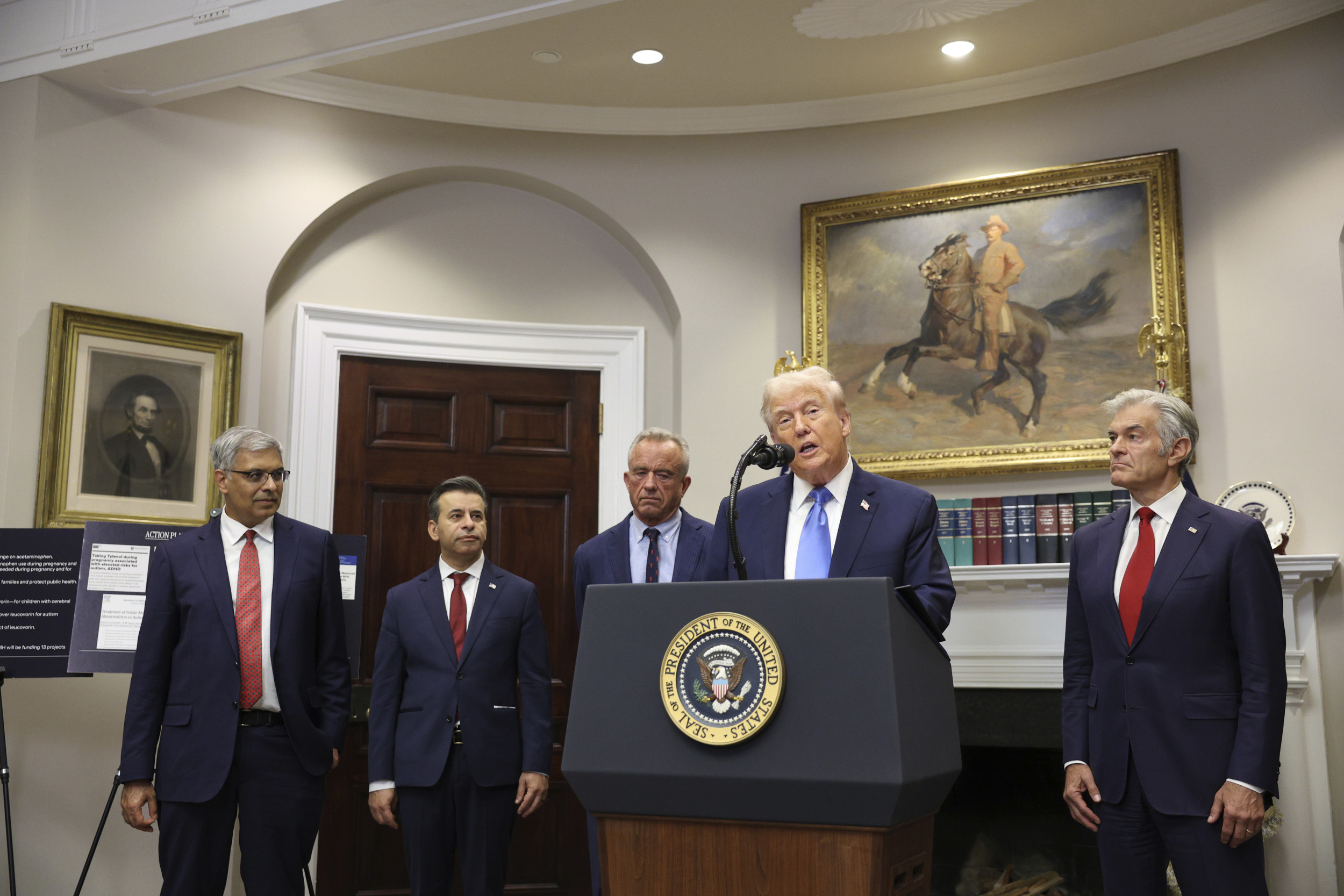
A California man who voted for President Donald Trump has spoken out after being detained by immigration agents.
Brian Gavidia, a 29-year-old American citizen from Montebello, joined a lawsuit challenging immigration enforcement tactics after federal agents detained him on June 12, NBC 4 Los Angeles reported.
“I truly believe I was targeted because of my race,” Gavidia told the outlet.
Newsweek has contacted the Department of Homeland Security for comment.

Andrea Renault/STAR MAX/IPx
Why It Matters
Millions of Americans voted for Trump in support of his promise to carry out widespread deportations of migrants living in the U.S. illegally, particularly those with criminal records. As immigration enforcement efforts ramp up across the country, concerns are mounting that the Trump administration is not, as it pledged, targeting the “worst first.”
Newsweek has documented several cases of Trump supporters being affected by the immigration raids.
What To Know
Gavidia voted for Trump believing that his administration’s immigration agenda would target criminals, not everyday citizens, NBC 4 Los Angeles reported.
He told the outlet that during an immigration enforcement operation in the San Gabriel Valley, a federal agent pushed him against a wall and demanded proof of citizenship, asking him the name of the hospital where he was born.
Footage circulating on social media shows Gavidia shouting, “I was born here in the states, East LA bro!”
The video shows agents, who are wearing vests with “Border Patrol Federal Agent” on them, holding Gavidia’s hands behind his back.
Agents allegedly confiscated his Real ID and phone. Gavidia was later released and recovered his phone, but he said he never received his ID.
Convinced he was targeted because of his Latino heritage, Gavidia now rejects his prior support for the president.
“I believe it was a mistake because he ran on lies,” Gavidia said. “He said criminals.”
“If this was going to happen, do you think we would have voted? We’re humans. We’re not going to destroy our community. We’re not going to destroy our people,” he continued.
Gavidia is among seven plaintiffs in an American Civil Liberties Union lawsuit that resulted in a court order limiting when federal agents can initiate immigration enforcement.
The filing requested that the court prohibit raids conducted without reasonable suspicion or probable cause. It also said agents concentrated operations in places where Latino workers were often found, such as local car washes and outside Home Depot locations.
California has been a key battleground state for immigration enforcement operations after Trump ordered federal agents to ramp up arrests in Democratic cities.
On August 1, the Ninth Circuit Court of Appeals upheld a temporary restraining order, originally issued by a federal judge, that placed limits on how the federal government could carry out immigration enforcement operations in Southern California.
An attorney for the Trump administration argued before a three-judge panel of the Ninth Circuit Court of Appeals in San Francisco, seeking a stay of the temporary restraining order while the case was appealed. The panel denied the request.
The decision upholds a July 11 ruling granting a restraining order sought by immigrant rights advocates to limit federal immigration enforcement in Los Angeles and other areas of Southern California. Under Judge Maame E. Frimpong’s directive, officers and agents may not detain individuals unless they have reasonable suspicion that the person is in the United States in violation of immigration law.
What People Are Saying
Brian Gavidia told NBC 4 Los Angeles: “I believe I was racially profiled. I believe I was attacked because I was walking while brown. Where is the freedom? Where is the justice? We live in America. This is why I’m fighting today. This is why I’m protecting the Constitution.”
What Happens Next
Despite the legal restrictions, immigration raids continue. The Trump administration has appealed the Ninth Circuit’s decision that upheld the temporary restraining order. The case is now before the U.S. Supreme Court, which will decide whether to lift or uphold the restrictions limiting broad-based immigration enforcement in Los Angeles.




